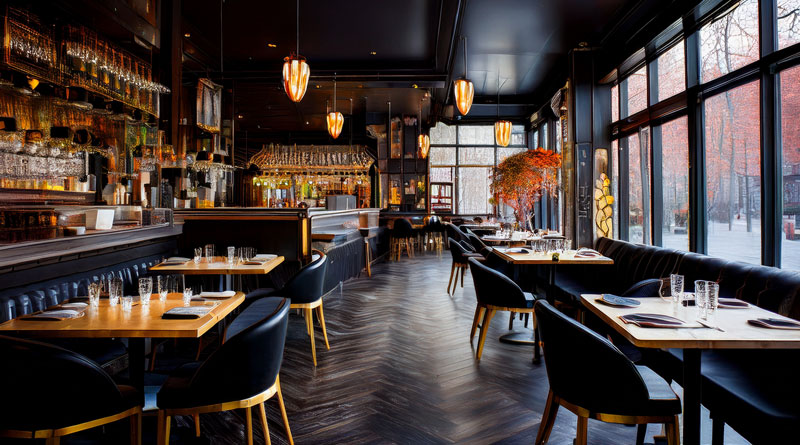Dine And Dash’ Epidemic Compounding Hospitality Crisis

The UK hospitality sector is grappling with a surge in ‘dine and dash’ incidents, as cash-strapped consumers increasingly leave restaurants without settling their bills – delivering another devastating blow to operators already reeling from a cascade of financial pressures.
Industry data reveals a marked increase in such incidents, UKHospitality said a third of its surveyed members had experienced customers refusing to pay for their food.
The trend represents yet another challenge for restaurant and pub operators who are simultaneously contending with April’s national insurance increases, rising national minimum wage obligations, reduced business rate relief, persistent inflationary pressures, and declining footfall.
For hospitality businesses operating on notoriously thin margins – often as low as 3-5% in the restaurant sector – even relatively small unpaid bills can have disproportionate impacts on profitability.
One Oxford operator speaking to the BBC said her restaurant was recently targeted by a group who failed to pay, saying: “We had a group of people come in, they ordered a lot of food at once and a lot of expensive drinks and their bill was £230,” she said.
She said running up a large bill was only the first part of the scam. The group then said they had found a piece of glass in their food.
“They usually place the foreign object in the food at the end,” she said.
“They try to leave completely without paying anything.”
When the diners were challenged the situation became heated.
“The young lady that was talking to me was in my face, screaming at me and calling me names,” she said.
“We’re seeing restaurants having to absorb these losses at the worst possible time,” explains one industry consultant. “Operators are already struggling with the double-digit increases in employment costs from April’s national insurance and minimum wage rises, while business rate relief has been slashed from 75% to just 40%. Every unpaid bill now represents a much more significant hit to their bottom line.”
The rise in incidents has highlighted the complex legal landscape surrounding such behaviour, with restaurant owners often uncertain about their rights and remedies. Legal experts warn that while the temptation to take immediate action may be strong, operators must carefully consider their response to avoid potential legal complications.
In a recent article for CLH NEWS Sunjay Versani, Solicitor Advocate and Crime Director at Duncan Lewis Solicitors said: “One in twenty Britons have admitted to committing a ‘dine and dash’ offence at some point in their lives.”
“It’s surprising not because of the apparent ubiquity of this crime, but because seemingly sensible people with the means to pay for their meals think this behaviour is acceptable and have no shame in saying so.”
“The frivolity of the phrase ‘dine and dash’ perhaps does a disservice to just how serious this sort of behaviour actually is. However, restaurant operators should balance the need to take immediate remedial action against the long-term legal and financial implications of so doing.”
“The consequence is hard felt, and restaurants are bearing the financial brunt at a time when operating margins are already slim.”
While operators may theoretically exercise powers of citizen’s arrest under section 24A of the Police and Criminal Evidence Act 1984, legal experts strongly caution against this approach. “This is fraught with risks, including potential counter-allegations of assault or false imprisonment and escalation into serious violence and property damage, “Mr Versani added. “The caselaw is littered with cautionary tales of proprietors, waiters and kitchen staff trying to restrain people from leaving and getting far more than they bargained for.”
Instead, police typically advise restaurants to implement preventative measures such as taking photo identification, securing credit card details, or requesting deposits before service.
A National Police Chiefs’ Council spokesperson said:
“Dine and dash type offences are largely opportunistic in nature and we would encourage all business owners and staff to make sure that when they do happen, they are reported so their local force can take action.
“While policing will always follow all possible lines of enquiry to identify and pursue offenders, and tools like CCTV can greatly assist with this.”
